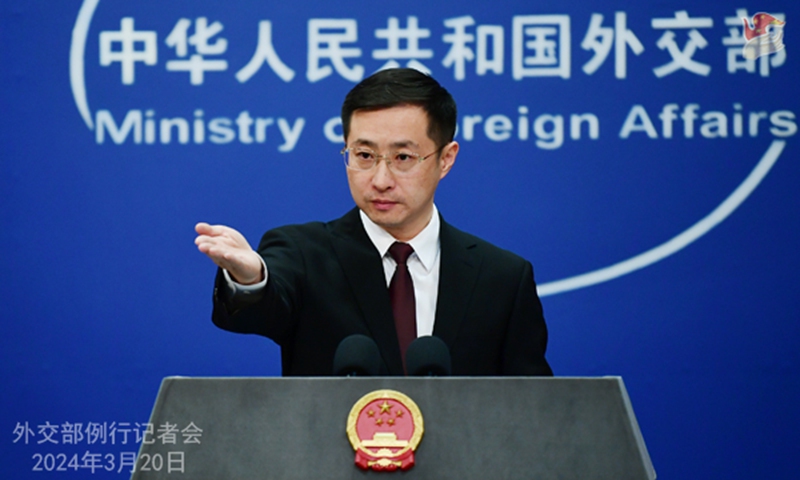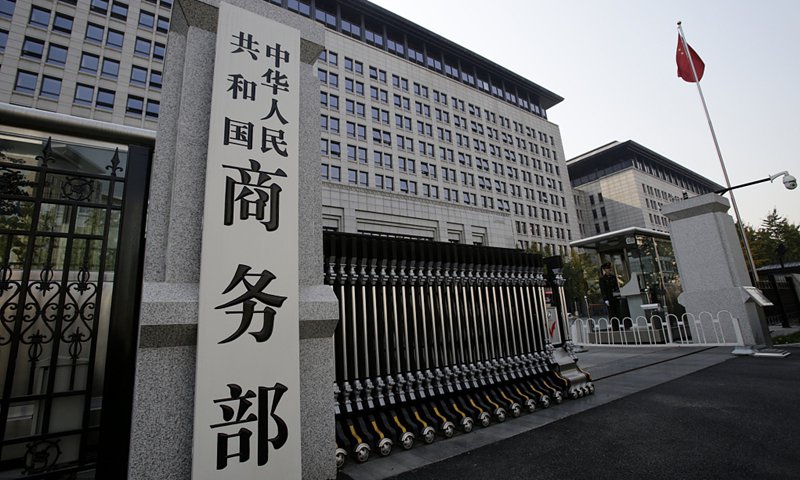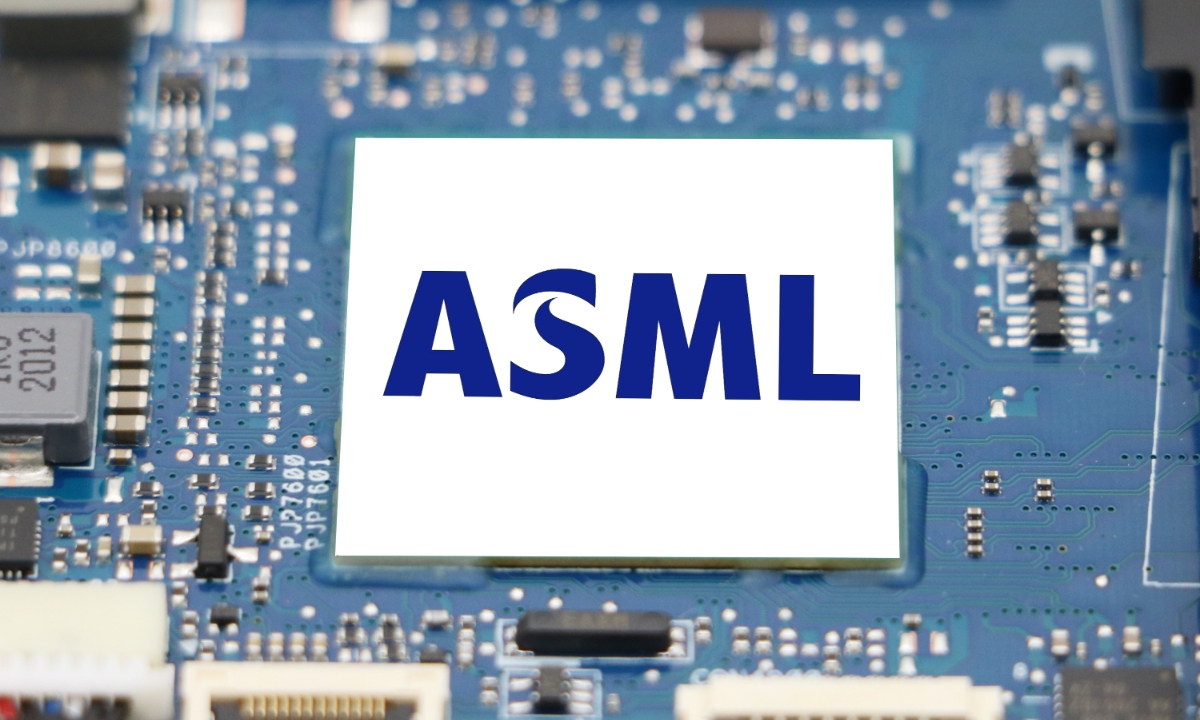China slams reported US list on chip tool exports control targeting Chinese chipmakers

Chinese Foreign Ministry spokesperson Lin Jian. Photo: China's Foreign Ministry
China urges the US to immediately correct its wrongdoings and stop its illegal unilateral sanctions and long-arm jurisdiction against Chinese companies, Chinese Foreign Ministry spokesperson Lin Jian told a routine press conference on Friday, commenting on a reported list being drawn by the US commerce department barring Chinese chip factories from obtaining key tools.
The US is drawing up a list of advanced Chinese chipmaking factories barred from receiving key tools, Reuters reported on Friday citing people familiar with the matter.
"China always firmly opposes US technology crackdown against China, its sanctioning and suppressing of Chinese companies aimed at curbing China's development," Lin said, noting that such actions seriously damage the legitimate rights and interests of Chinese companies.
These actions seriously violate the principles of the market economy, gravely undermine international trade norms and seriously affect the stability of the global semiconductor industrial and supply chains, Lin said.
"We will closely monitor the situation and resolutely safeguard the lawful interests of Chinese companies," Lin said.
The list by the US is aimed at drawing a clearer picture on which Chinese chip factories will not receive chipmaking tools, as a patch to a ban issued by the US commerce department in 2022. Sources say they could be released in the next couple of months, Reuters reported.
The move, which came out after a number of CEOs from top US chip companies visited China and pledged more investment or announced various projects, and a visit by Dutch top trade official with a softened tone over exports control measures over the exports of its lithography systems to China, is closely watched by Chinese analysts.
"The message, as disclosed in the media, showed the Biden administration is under great pressure from within the US and its semiconductor industry to draw the boundary of its so-called 'small yard' so that business outside the prohibited areas can proceed," Gao Lingyun, an expert at the Chinese Academy of Social Sciences, told the Global Times on Friday. "Now it is rather blurred."
The message also serves election purpose for the Biden team, stating a tough stance on China at the same time pacifying the US semiconductor community, ensuring ballots from all sides, the expert said.
A spokesperson for the Chinese Embassy in Washington told the Global Times that "this is out-and-out economic bullying and arbitrarily placing curbs or forcibly seeking decoupling to serve political agenda violates the principles of market economy and fair competition."
The news came as CEOs of some leading US semiconductor companies including the CEOs of AMD, Qualcomm and Micron visited China this week to attend the China Development Forum (CDF), held from Sunday to Monday in Beijing, expressing their commitment to the Chinese market and willingness to pursue cooperation.
Micron Technology on Wednesday broke ground at its new plant in Xi'an, Northwest China's Shaanxi Province, as part of its $603 million investment plan announced in June 2023.
The same voice seeking for cooperation with China can also be heard from some of the US' allies.
During a meeting with Chinese Commerce Minister Wang Wentao in Beijing on Wednesday, Dutch Minister for Foreign Trade and Development Cooperation Geoffrey van Leeuwen said "Dutch export controls do not target any country," in a softened tone over controls on exports of lithography machines by Dutch companies to China.
The Dutch government said on Thursday it would spend $2.7 billion in the Eindhoven region to ensure the Netherlands' largest company ASML doesn't move its operations abroad.
ASML warned in January that US export controls would affect its sales in China by 10-15 percent in 2024.
Chinese experts said that the "small yard and high fence" of the US government will not stop China's innovation-driven development, nor will it do any good to US companies or the entire semiconductor industry.
Open cooperation is the core driving force for the growth of the semiconductor industry and China is one of the major semiconductor markets in the world, they noted.




